
Diet And Weight Loss To Make You Faster
Nutrition and food choices are a key component of weight loss for all endurance athletes, including cyclists. When done correctly, weight loss can have a huge
Although Bike Month in Colorado is officially over, for some community members, Bike Month is every month of the year.
For these individuals, there is no designated Bike Month on their calendars, because every day is spent improving the community one bike at a time.
Every day, these bike enthusiasts are working to get kids, special needs individuals, and others facing limited mobility options onto bikes. While the important work they do often goes unnoticed, a collective sense of altruism and a passion for bikes keeps them going.
Pedaling Kindness
For Gary Lowe of Northglenn, what began as a hobby (transforming bikes into e-bikes), has morphed into a community project.
The owner of Smart Citiez Group (a small tech firm that provides clean and renewable digital transportation solutions), has recently been building e-bikes for special needs people in his community as a side project to his current job.
With over 20 years of experience working in the engineering and technology sector, Lowe’s natural desire to perform acts of kindness combined with his hobby of building electric motors makes for a perfect pastime in building e-bikes for others.
To date, Lowe has built more than 60 modified e-bikes and e-trikes (including a drift e-trike for a boy with cerebral palsy) for community members with limited mobility. Some recipients hadn’t ridden a bicycle in decades.
Listening to their needs, and customizing their bikes with the correct motor, he is responsible for increasing mobility for dozens of people in the greater Denver metro area.
“The e-bike project started about three years ago in my garage, and it quickly caught on with the community,” said Lowe.
“Over the years, I have built many e-bikes for special needs people and taught people and young adults how to build their own e-bikes,” he continued.
His most recent success was this spring, when 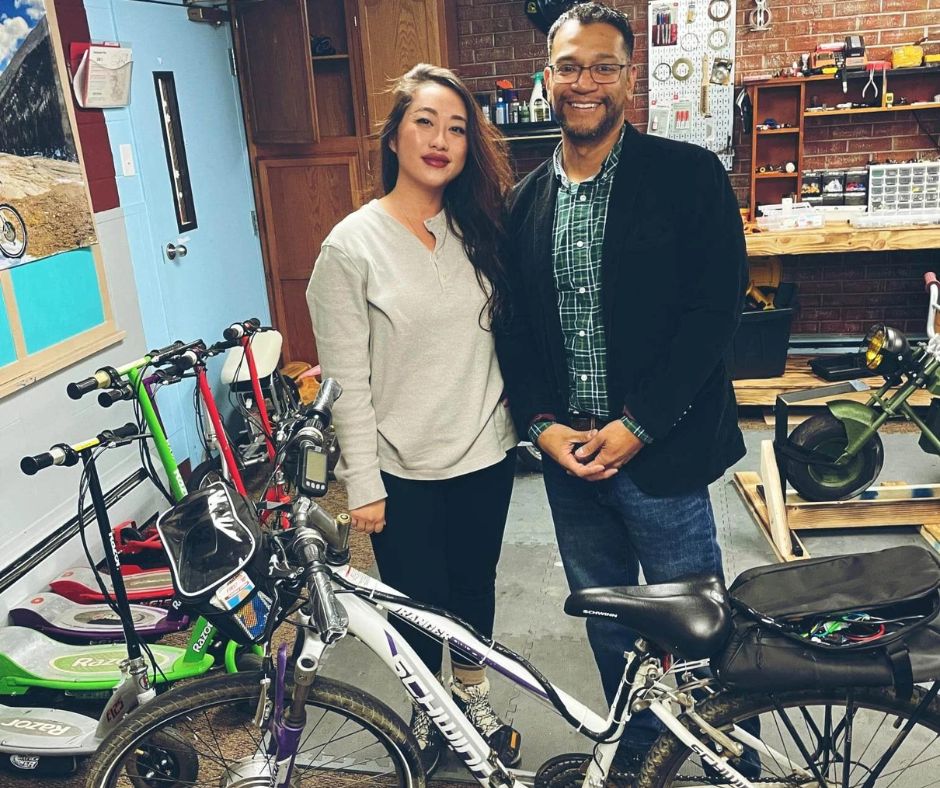 Smart Citiez Group collaborated with the Asian Roundtable of Colorado (ARC) for the “Pedaling Kindness” initiative.
Smart Citiez Group collaborated with the Asian Roundtable of Colorado (ARC) for the “Pedaling Kindness” initiative.
In the “Pedaling Kindness” initiative, he taught 15 high school students how to re-engineer bicycles into e-bikes for charity.
The initiative provided inquisitive teens an opportunity to build e-bikes for people in need, while learning engineering skills including mechanics, wiring, and assembly. Soft skills such as teamwork and collaborative problem solving were also introduced.
“It is essential to teach young people how to build and customize their own e-bikes so that they develop important skills in mechanics, electronics, and sustainability and are empowered to create a more sustainable future,” said Lowe.
Over the course of 4-5 days in April, Lowe taught students how to build e-bikes at the Crossroads Community Center in Westminster.
At the completion of the program, students had to share what love and labor was required to build the bike, and identify a worthy recipient. Each student was awarded a $200 stipend by the ARC at the completion of the program.
Lowe and his students were recognized at a press conference this spring when the bikes were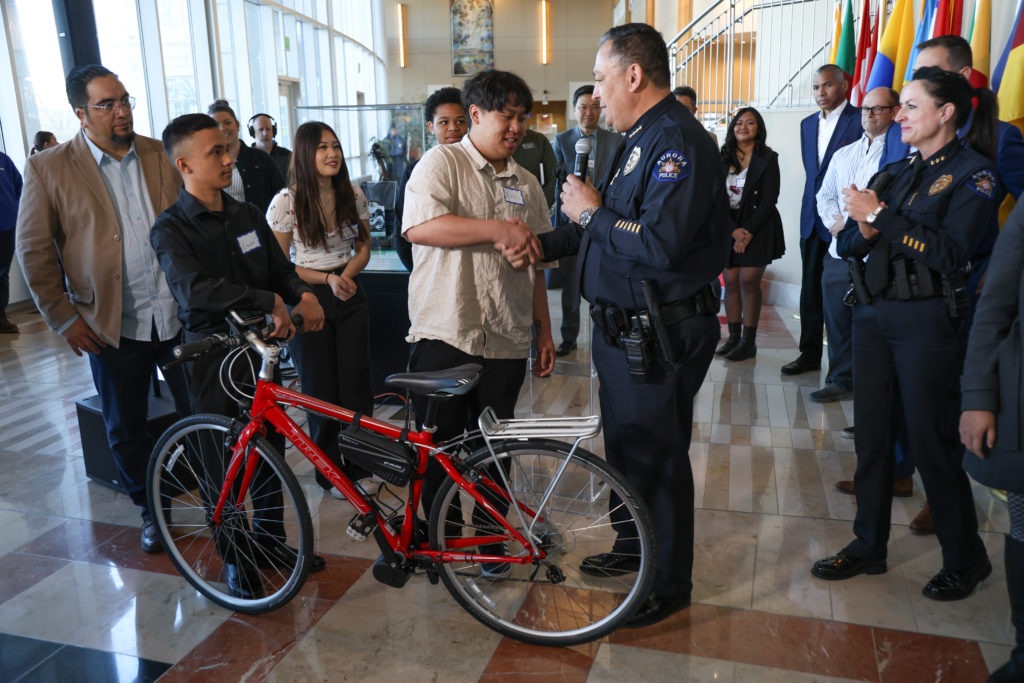 donated. The ARC, along with Colorado Smart Cities Alliance, partnered up to present these bikes as part of ARC’s #ActionAgainstHate campaign with the Aurora Police Department joining in support.
donated. The ARC, along with Colorado Smart Cities Alliance, partnered up to present these bikes as part of ARC’s #ActionAgainstHate campaign with the Aurora Police Department joining in support.
“I am passionate about sparking the minds that change the world. I am working on setting up similar programs all over the United States to get young minds involved,” he concluded.
Recycle Bicycles
Since its establishment in 1994, the non-profit collective Recycle Bicycles has redistributed over 22,000 bikes to schools, housing projects, and inner city shelters.
Before recycleries in Denver became mainstream, Recycle Bicycles was already established as a source of refurbished bikes for those in need. What makes Recycle Bicycles truly stand out from others is not only its tenure, but the fact that it has always been guided by a keen sense of altruism by its leadership.
“When I am working on a bike that I know will 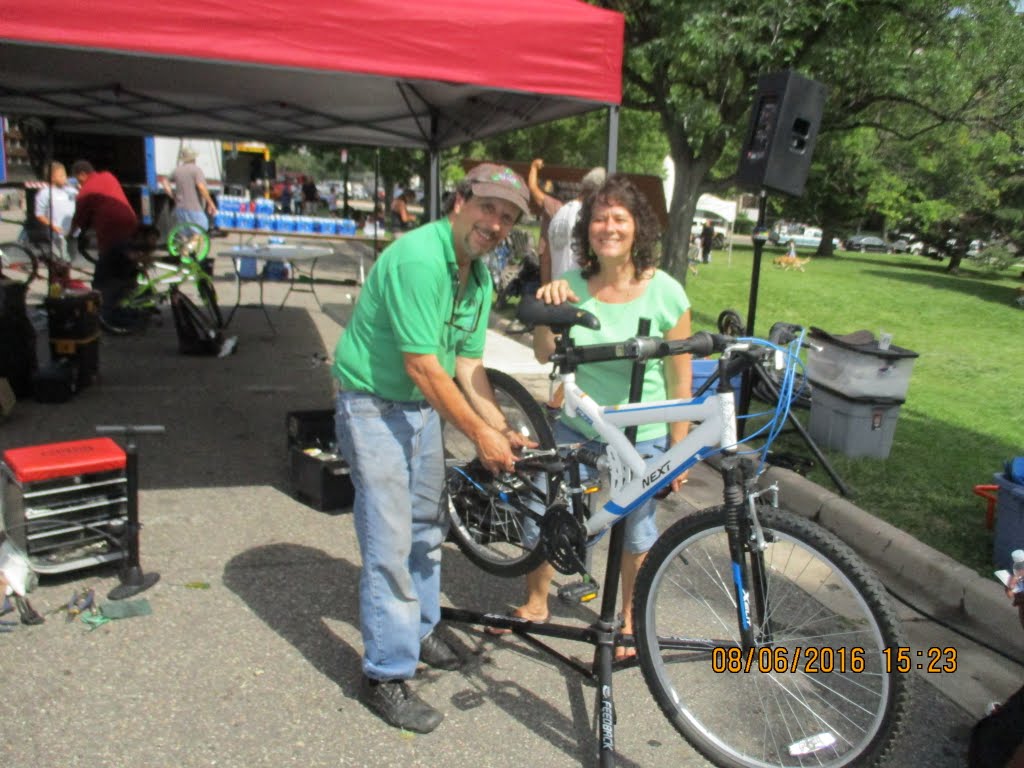 go to someone (child or adult) that would otherwise not have a bike, it gives me great satisfaction; I call it wrench therapy,” said director Bruce Lien.
go to someone (child or adult) that would otherwise not have a bike, it gives me great satisfaction; I call it wrench therapy,” said director Bruce Lien.
Selflessness and a desire to help others laid the foundation for Recycle Bicycles that has been a fixture in the cycling community for decades.
“Since 1994, we have learned a great deal, both about how to repair bikes as well as how to network and get the bikes out in the communities, not only local, but places like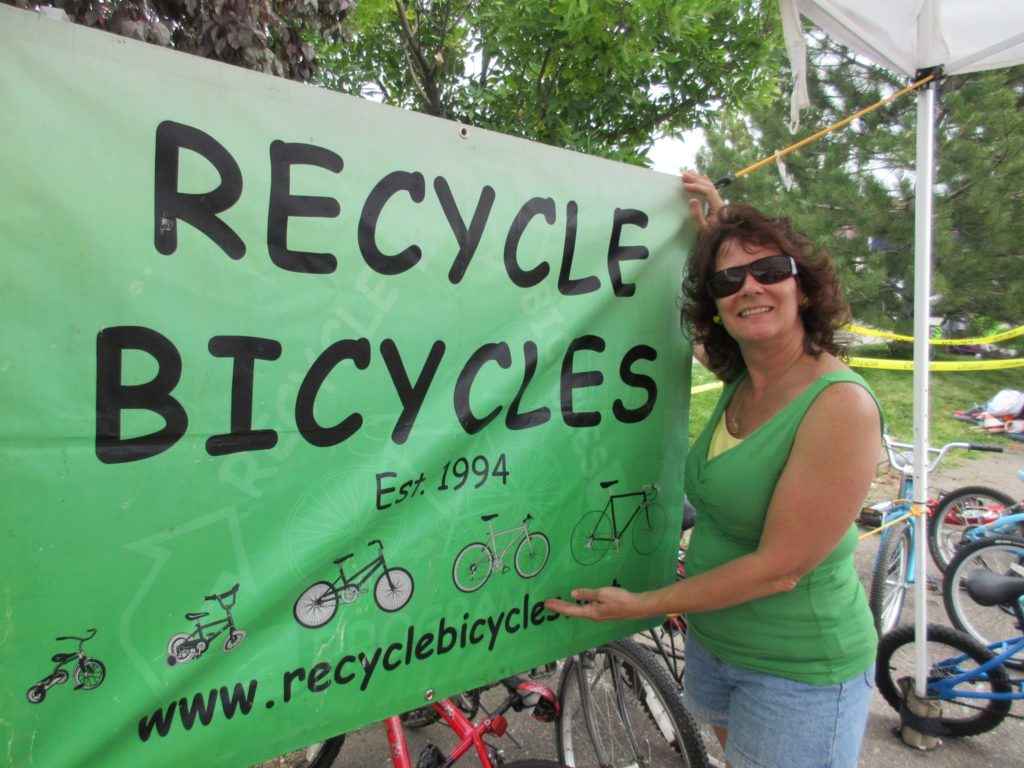 Native American reservations,” Lien reflected.
Native American reservations,” Lien reflected.
A formative year
1994 was a formative year for Recycle Bicycles in that both its founder, Dave Bauer, and eventual director, Bruce Lien, began their parallel paths in helping to get people in bikes.
Recycle Bicycles founder Bauer came up with the idea to begin the non-profit after a particularly inspiring sermon at church, in which he left thinking, “I need to give bikes to those in need.”
After establishing Recycle Bicycles, Bauer placed an ad in the local neighborhood newsletter asking for bike donations. He used his pickup truck to transport bikes and a friend offered use of his storage facility.
RTD learned of what Bauer was doing and offered him bikes from their lost and found. Meanwhile, he established a wholesale account with a local bike parts distributor and Recycle Bicycles was on its way.
While Bauer was donating the first load of repaired bikes to the Sun Valley neighborhood (the zip code with the lowest income per capita in the state), future Recycle Bicycles director Lien was fixing a replacement wheel for a student at the Commerce City middle school where he worked as a school psychologist. Soonafter, he built a bike.
“Although the first bike took 4 hours to completely disassemble and reassemble, the learning experience proved of great value. Soon, the middle school students asked if an after school bike repair club could be started,” said Lien.
He was excited to share his enthusiasm with students and provide a meaningful experience.
Utilizing the idea of “altruism in action”, the club that he organized offered students an opportunity to develop their own bike repair skills.
He made a deal with students. The first bike they fixed would be given to someone in need, the second bike they repaired would be theirs to keep. At one point, there were over 60 students on the waiting list for their chance to work on bikes.
Over the years, Bauer and Lien crossed paths at community bike repair and giveaway events, many organized by Inner City Health. The men recognized a shared desire to help others by getting them on refurbished bikes, and a kinship was formed.
In 2003, Lien retired from being an educator. Eager to continue building and donating bikes for underserved communities, he joined Bauer at Recycle Bicycles.
“That is when our collective efforts really became fruitful, repairing and giving over 1,000 bikes to those in need annually,” said Lien.
While the pandemic temporarily slowed Recycle Bicycles down, donations have bounced back, as have the number of bikes refurbished and given away, Lien said happily.
“Time has seen all of us grow a little older, a little wiser. Some of our original volunteers have moved away or moved on. Throughout the years I have met so many generous, caring people who all want to make the world a better place, two wheels at a time. What hasn’t changed is the deep, heartfelt satisfaction that comes from bettering the lives of others,” he finished.
For decades, Lien, Bauer and Recycle Bicycles have been guided by a favorite quote, ” A person is truly blessed that pursues their passion that benefits others.”
Want to volunteer or make a monetary donation? Contact Recycle Bicycles here. Need to drop off a bike? Bring it by Campus Cycles.
Education meets excitement
A bike track improves confidence and technical riding skills; it can also be a lot of fun. Just ask students at Rocky Mountain School of Expeditionary Learning in south Denver.
Recently, educators, parents, and volunteers at the RMSEL in south Denver built a permanent bike track for students to use.
“We wanted to build the bike track to make it 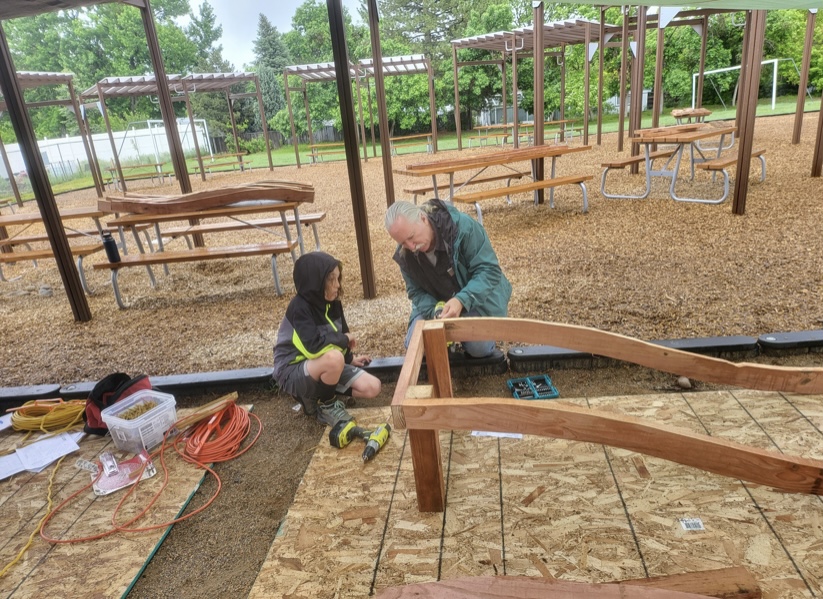 more convenient for students to practice their biking skills,” said educator Michael Kligerman.
more convenient for students to practice their biking skills,” said educator Michael Kligerman.
“Previously we had a variety of jumps (wooden and plastic), rollers, and obstacles to balance on. We had put these out every time we wanted to use them. They were heavy and it was time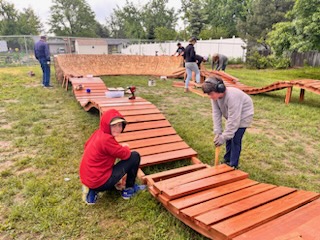 consuming- time we could have been riding!” said educator Michael Kligerman.
consuming- time we could have been riding!” said educator Michael Kligerman.
According to Kligerman, the parent that helped co-lead the after school biking course came up with the idea. Many students rode their bikes to school and they wanted to find other ways to maintain their interest in bicycles.
Because school resources were earmarked for other projects, they found volunteers and raised money for the pump track themselves.
Getting a permanent bike track was a way to engage students and keep them physically active was a goal, but so was encouraging students to use the pump track as a confidence-builder.
Kligerman’s advice to get students interested in biking at a young age? Make it fun.
“Play games like slow races or bike tag. Encourage students to make small, tangible goals, then increase the difficulty and their goals,” he suggested.
“Having a variety of skills to work on keeps things interesting and shows all the aspects of cycling separately and together,” he concluded.
Photo credits: Gary Lowe, Recycle Bicycles, Michael Kligerman.

Nutrition and food choices are a key component of weight loss for all endurance athletes, including cyclists. When done correctly, weight loss can have a huge
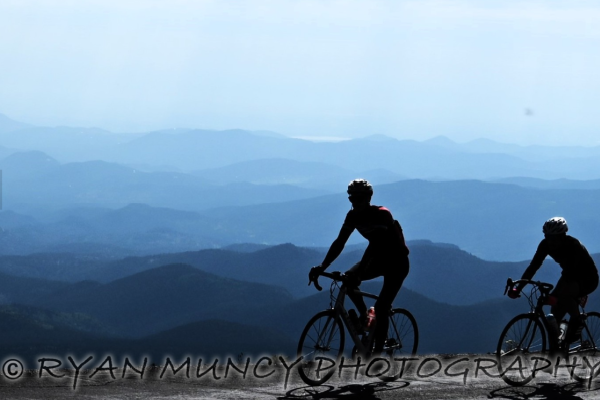
Photos are rolling from Mt. Blue Sky/Bob Cook Memorial Hill Climb p/b Team Evergreen on that was held this past weekend. The day lived up

Pad Thai is a popular street food in Thailand, which is whipped up quickly and packed full of flavor. It’s one of our favorite post-ride
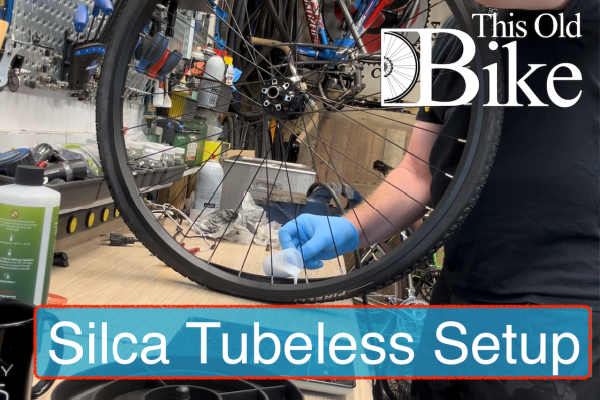
Tubless Tires: Myth or Magic? Justin Bolinger of I Know a Guy Bicycles “UNBOXES” the Truth about this setup (Should you go Tubeless?) Recent Posts
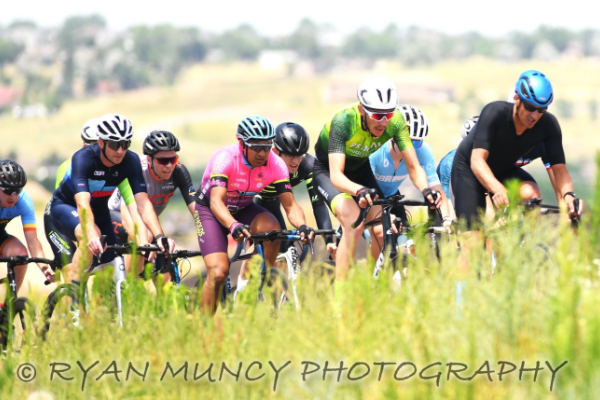
Last week, Douglas County hosted the Natural Grocers Criterium at their sheriff’s training facility, and the camera of Ryan Muncy/Ryan Muncy Photography was on the scene

When you are looking to refuel at lunchtime, go for carbs and quality protein – this pasta dish is ideal. Cycling takes energy, and energy come